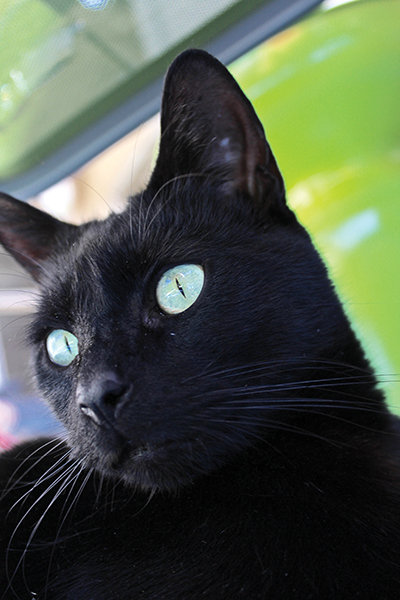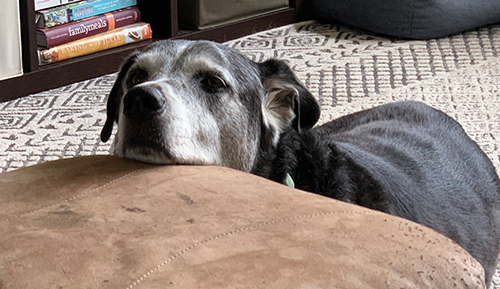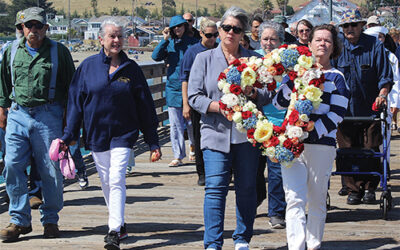February is National Spay/Neuter Awareness Month, and Woods Humane Society is opening the doors to save lives. The clinics returned to full capacity for public appointments after the most recent state-mandated restrictions to curb the spread of the COVID-19 pandemic were lifted on January 25.
Woods’ spay/neuter clinics, located in both San Luis Obispo and Atascadero, had shutdown briefly at the start of the pandemic before resuming limited services, which also impacted the number of surgeries that could be performed in one day.
“This is good timing as unaltered roaming pets begin to reproduce when it warms up in the spring,” said Humane Education Manager Jamie Relth of Woods Humane Society. “Kitten season typically begins in March or April and goes all the way through the fall on the Central Coast. Hopefully, with our operations at full-steam, we can get ahead of that cycle and reduce the number of litters born by altering local owned and un-owned pets now.”
The clinics have pivoted to an outdoor, curbside, masked pick-up and drop-off protocol, among other precautions, to protect all parties and to remain compliant with all mandated safety and social-distancing protocols.
Project M.E.O.W.
Kitten season is right around the cat tree, and Woods has a pawsome goal. The non-profit organization is determined to raising enough Project M.E.O.W. funds to spay/neuter 1000 un-owned community cats in 2021.
Project M.E.O.W. aims to help manage community cat populations by offering a subsidized spay/neuter surgery, in addition to a rabies vaccine and an identifying ear tip, for just $25. This reduced cost allows local rescues and concerned citizens to Trap, Neuter and Return (TNR) more community cats, both friendly and feral.
“We work closely with local volunteers who trap community cats to bring to the clinic for their surgeries and then return them to their colonies,” Relth said. “Trapping is an unpredictable process, so it is hard to plan precisely for how many cats we will alter each month. Over the last two years, we have strengthened our ties with local cat caretakers and fine-tuned our process so that—with enough Project M.E.O.W. funds, with our staff and volunteers in place at the clinic, and with some luck—we could achieve this goal of 1,000 cats and greatly contribute to managing the number and welfare of local community cats. We hope to continue to grow the fund to meet the need of even more cats, but for this year, we hope to push the bar to this next level.”
Since its inception in 2019, Project M.E.O.W. has already helped fund 1,913 ultra-low-cost community cat spay/neuter surgeries, stabilizing cat colonies and preventing an estimated 10,908 kittens from being born to a life without a home or basic medical care.
With kitten season coming, and with the estimated mortality rate of un-owned kittens thought to be as high as 75 percent because they are at a high risk of suffering from preventable diseases that would be avoided with basic veterinary care and just one, all-encompassing vaccine, Woods Humane Society says this cause is both humane and urgent.
“Shelters are typically inundated with kittens during that period,” Relth said. “Woods Humane Society, however, does not euthanize for time or space, so none of the cats or kittens that come into our program will be impacted in that way. In fact, the shelters in our area are, thankfully, not typically euthanizing due to overcrowding.What our area could see, in the absence of spay and neuter efforts, is an increase in the number of kittens found sick or injured. Another consequence we can see is a higher incidence of unvaccinated stray or un-owned cats in the community, which can lead to health issues in cat colonies and cause problems of cat fighting, spraying and other issues for home and business owners. Inevitably, we’d also see the growth of the homeless pet population and higher numbers of animals that are brought into the shelter in need of basic nutrition and medical support.”
Even amid the challenges of 2020, Woods Humane Society was able to perform 4,870 spay/neuter surgeries last year, for animals in its own adoption program, as well as for SLO County Animal Services Division and for public pet owners and local animal rescues.
For information about scheduling a spay or neuter surgery for owned pets, visit SpaySLOCounty.org. To schedule a subsidized surgery for a community cat, call (805) 464-5034.
Donate to Project M.E.O.W. at WoodsHumane.org/ProjectMEOW.
Adoption Status
One of the most heartwarming things to come out of the pandemic is the increase in pets that were adopted. Shelters across the country were making news as one after another announced that all animals had been adopted. Is the news as good at Woods?
“Adoptions have been going very well at Woods and we have been grateful to see that the average length of stay for an animal at Woods actually went down across the board in 2020,” Relth told Estero Bay News. “Particularly, in our North County location, the length of stay for cats went from 29 days to 12.4, on average. Additionally, that location was able to empty the shelter completely twice this year and processed more adoptions in 2020 than in any previous year in that location’s history, with 1,037 adoptions. Between both shelter locations, our organization placed 2,472 animals into loving homes in 2020.

“With that said, the pandemic and the related restrictions on travel have kept us from transporting as many animals from other regions of California where shelters are more overcrowded with homeless pets. For this reason, our overall number of adoptions was slightly lower in 2020 than the year prior.
Even more good news, Woods has not seen an uptick in animal surrenders during what has been very difficult times for many people.
“We have also noted a decrease in the number of animals returned after adoption,” Relth said. “This might be attributed to the fact that many families have more time at home to bond with and train their new pets so that they have a more successful outcome. We do hope to support those families with training tips to ease the transition back to working away from home and away from their pets, as that could be a concern in the future.”
If readers are struggling financially and are unable to care for their pets, Woods recommends scheduling an appointment with their intake team to take in the animal.
“They can also call us to surrender a litter of kittens or puppies for free, with a low-cost spay for the mom, if that is the case,” Relth said. “The worst thing they can do is dump or abandon the animal, leaving it at risk to starve or suffer. It’s a very tough call to make when a person has to surrender a pet. We are very grateful to have the support of the community so that we can be here for them and their pet to make sure that the animal never wants for love or care and finds a new home quickly.”
Check out the animals up for adoption at woodshumane.org. To make an appointment, call Woods Humane Society SLO, located at 875 Oklahoma Avenue in San Luis Obispo, at (805) 543-9316, or Woods Humane Society North County, located at 2300 Ramona Road in Atascadero, at (805) 466-5403.



